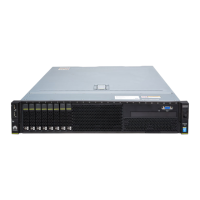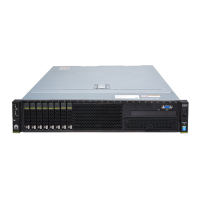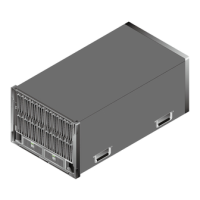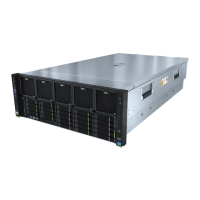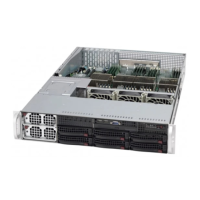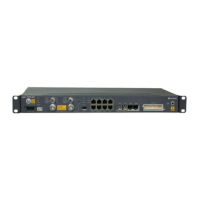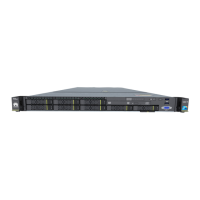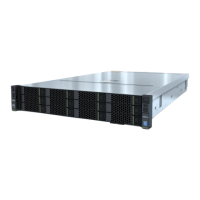PC
Ie
D
ev
ic
e
CP
U
PC
Ie
St
an
da
rd
Connector
Width
Bus Width P
o
rt
N
u
m
b
e
r
Root
Port
(B/D/
F)
Device
(B/D/F)
Slot Size
Fl
ex
IO
ca
rd
CP
U
1
PCI
e
3.0
x8 x8 P
o
rt
2
A
00/02
/0
A FlexIO
card with
four
network
ports is
used as
an
example.
● 02/00
/0
● 02/00
/1
● 02/00
/2
● 02/00
/3
-
Note 1: B/D/F stands for Bus/Device/Function Number.
Note 2: Root Port (B/D/F) indicates the bus number of a CPU internal PCIe root
port. Device (B/D/F) indicates the bus number (displayed on the OS) of an
onboard or external PCIe port.
Note 3: The PCIe slots that support full-height full-length PCIe cards are
backward compatible with full-height half-length or half-height half-length
PCIe cards.
Note 4: The PCIe slots with the bus width of PCIe x16 are backward compatible
with PCIe x8, PCIe x4, and PCIe x1 cards.
Note 5: All slots support PCIe cards of up to 75 W. The power of a PCIe card
varies depending on its model. For details about supported PCIe cards, use
Computing Product Compatibility Checker. For details about other PCIe cards,
contact the local Huawei sales personnel.
Note 6: The table lists the default values of B/D/F. If PCIes are not in full
conguration or a PCIe card with a PCI bridge is congured, the values of B/D/F
may dier.
Note 7: For a server with four NVMe PCIe SSDs, a 2-slot riser module must be
installed in I/O module 2 and an NVMe PCIe SSD adapter can be installed only
in slot 7.
RH2288H V3 Server
User Guide 2 Overview
Issue 46 (2022-12-28) Copyright © Huawei Technologies Co., Ltd. 18
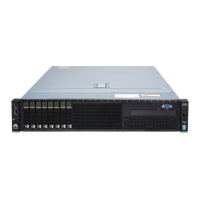
